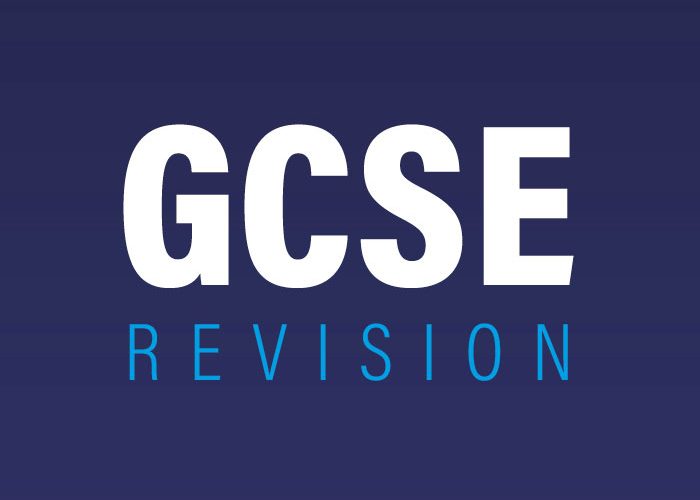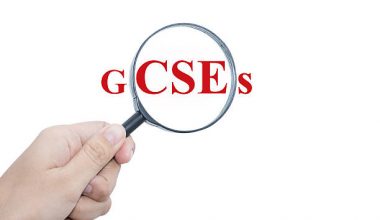When the time for GCSE draws closer, it’s normal to feel a little stressed! Suddenly, all those textbooks and notes can seem like a giant mountain to climb. Studying for the GCSEs can be difficult, but it doesn’t have to be.
One of the key elements to achieving success in GCSE exams is creating an effective GCSE revision plan.
We all know cramming the night before isn’t the best strategy. Instead, let’s create a rock-solid revision plan that feels manageable and fun.
In this article, we will explain the steps to creating a personalized revision plan that works for you. We’ll discuss setting realistic goals, making the most of your study sessions, and finding ways to keep yourself motivated.
Table of contents
What Is GCSE All About?
GCSE (General Certificate of Secondary Education) is an academic qualification that students in the United Kingdom typically pursue between the ages of 14 and 16, usually in the final two years of secondary school education.
It serves as a foundational stepping stone for further education, including A-levels (Advanced Level) or vocational courses, and it also provides a basis for entry into higher education or the workforce.
GCSEs cover many subjects, including core subjects like English, Mathematics, and Science (usually Biology, Chemistry, and Physics). In addition to these core subjects, students can choose from various optional subjects such as History, Geography, Modern Foreign Languages, Art, Music, Physical Education, and more.
The subjects you choose should reflect your interests, strengths, and future aspirations.
For those intending to pursue A-levels or other advanced qualifications, GCSEs provide a solid foundation of knowledge and skills that will be built upon in higher-level courses.
SEE ALSO: The 10 Most Popular GCSE Subjects | 2024 Ranking
How Can I Pass GCSE?
Passing your GCSE exams requires careful preparation and effective study strategies. Here are some steps you can take to increase your chances of success:
- Organize Your Study Schedule: Create a timetable that allocates enough time for each subject, including breaks. Consistency is key, so stick to your schedule as closely as possible.
- Understand the Syllabus: Make sure you have a clear understanding of the topics and concepts that will be covered in each subject. Review the syllabus or curriculum guidelines provided by your school or exam board.
- Set Clear Goals: Set specific, achievable goals for each study session and your overall exam performance. Having clear objectives can help you stay motivated and focused.
- Use Effective Study Techniques:
- Active Learning: Engage with the material actively by summarizing, questioning, and teaching it to others.
- Practice Problems: For subjects like math and science, solving practice problems is crucial for understanding and retention.
- Flashcards: Create flashcards for key terms, formulas, and concepts to aid memorization.
- Mind Maps: Visualize connections between ideas using mind maps or diagrams.
- Teach Others: Explaining concepts to someone else can help solidify your understanding.
Why Should You Start Your GCSE Revision Early?
To succeed in your GCSE exams, you must begin your revision early. The sooner you begin, the more time you have to learn and ensure you grasp the information.
Beginning early also enables you to spread your editing over time instead of attempting to squeeze everything in at the last minute. This can help you feel less anxious and perform better on test day.
When creating your revision schedule, it’s important to consider the amount of time you have until your exams and plan accordingly. For instance, if your examinations are many months away, you might wish to set aside a few hours each week for studying. You might gradually lengthen your study sessions as the tests draw nearer.
Your brain will be able to adapt to the increased effort, and this gradual increase in study time will decrease the risk of burnout.
Related Post: When Should You Start Revising For Your GCSEs?
How To Plan Effectively For GCSE
Here are the recommended steps to plan a revision timetable that works for your teen…
Step 1: Set realistic goals
To make a revision timetable, you must first know your teen’s goals. What do they want to accomplish with their revision? Once they have a goal, they can start figuring out what steps are needed to meet it.
Step 2: Allocate time for revision
How much time does your teen have available for study each week? You must consider school, homework, coursework, and social activities. You can start dividing that time into smaller chunks to help them reach their goal.
Step 3: Prioritise subjects
What subjects or particular topics within those subjects are the most challenging and should be allocated more time?
Perhaps some disappointing mock results have flagged particular focus areas, or are there subjects where a certain grade is needed to progress to the next level?
Decide which subjects require the most attention and prioritize these in the revision schedule.
Step 4: Color code subjects for a clear overview
Another helpful tip is to color code the GCSE-level revision template. Allocating a different color to each subject each day of the week will help to underline focus areas. You can also use different colors for reading, highlighting, and note-taking tasks.
Another way to use color coding is by creating different blocks of time for each subject. This will help your teen see how much time they have for revision. They can then plan which subjects they want to revise in each block of time.
SEE ALSO: How Many Hours A Day Should You Revise For GCSEs 2024?
Step 5: Break subjects into topics
It is important to break subjects into subunits. This will allow you to focus on each section individually and avoid feeling overwhelmed.
Additionally, setting realistic goals rather than trying to revise everything at once is helpful. When a mock or final exam is approaching, set a goal to review one topic daily. Breaking down the material into smaller chunks will help them retain the information and feel more confident during the exam.
Step 6: Fill in the gaps and allocate study sessions
Next, create a schedule for each week, allocating the appropriate number of hours to each subject and topic per day; after your teen has noted all their other commitments. Organization and planning ahead are essential for this step.
A 30-minute revision and 10-minute break is perfect for a successful study session.
Taking breaks throughout revision sessions is crucial. This will facilitate the brain’s ability to process the knowledge it has been studying.
Additionally, it’s crucial for students to switch between tasks or topics frequently and to engage in physical activity during breaks to stay attentive and focused.
READ ALSO: What Are GCSE Mocks Exam? Your Ultimate Guide For GCSE and A-Level
Step 7: Take notes from each session
Finally, make a note of what will be covered in each session. It’s important to outline what you will be revising each week.
We’d also recommend that students devote the necessary amount of time to each topic and don’t neglect the topics they find easiest. However, as mentioned above, students should spend the most time on subjects they find most challenging.
How To Manage Stress During GCSE Revision
Managing stress during GCSE revision is essential to ensure effective studying and well-being.
Here are some strategies to help you manage stress:
- Create a Study Schedule: Develop a structured study timetable that allocates time for each subject and topic. Having a plan in place can reduce feelings of being overwhelmed and help you stay organized.
- Set Realistic Goals: Break your revision into manageable chunks and set achievable goals for each study session. Completing small tasks can give you a sense of accomplishment and motivation.
- Practice Mindfulness and Relaxation Techniques: Take breaks to practice mindfulness, deep breathing, or meditation. These techniques can help reduce stress, improve focus, and promote a sense of calm.
- Stay Active: Engage in regular physical activity or exercise. Exercise is a great way to release stress, increase energy levels, and improve your mood.
- Maintain a Healthy Lifestyle: Eat nutritious foods, stay hydrated, and get enough sleep. A balanced diet and adequate rest contribute to better concentration and overall well-being.
- Stay Connected: Reach out to friends, family, or classmates for support. Talking about your concerns can help alleviate stress, and spending time with loved ones can provide a positive break from studying.
- Practice Time Management: Use techniques like the Pomodoro Technique (studying in focused 25-minute intervals with 5-minute breaks) to manage your time effectively and prevent burnout.
- Utilize Active Learning Techniques: Engage in active learning methods, such as summarizing notes, teaching concepts to someone else, or using flashcards. These methods can enhance retention and understanding.
- Prioritize Self-Care: Engage in activities you enjoy outside of studying, such as hobbies, reading, or listening to music. Taking breaks to do things you love can help recharge your mind.
- Seek Help When Needed: If you’re feeling overwhelmed, don’t hesitate to seek support from teachers, parents, or counselors. They can provide guidance, resources, and reassurance.
FAQs On GCSE Revision Plan
It’s a good idea to start your revision well in advance, preferably several months before your exams. This gives you enough time to cover all the material, practice, and review.
Allocate time-based on the number of marks available for each question. If you get stuck on a question, move on and return to it if you have time.
Yes, breaks are essential for maintaining focus and preventing burnout. Short breaks (5-10 minutes) between study sessions and longer breaks (15-30 minutes) every few hours are recommended.
Refer to your syllabus or curriculum guidelines. Past papers and mark schemes are also helpful indicators of what topics and types of questions are important.
Conclusion
Crafting a solid revision plan is crucial to excel in your GCSE exams. This includes defining goals, prioritizing tasks, and finding a suitable revision schedule. Personalizing your plan by considering your learning style and taking breaks can increase focus and motivation.
References
- edumentors.co.uk: GCSE Revision Plan: Create the Perfect Routine
- explorelearning.co.uk – How to make a GCSE revision timetable planner






